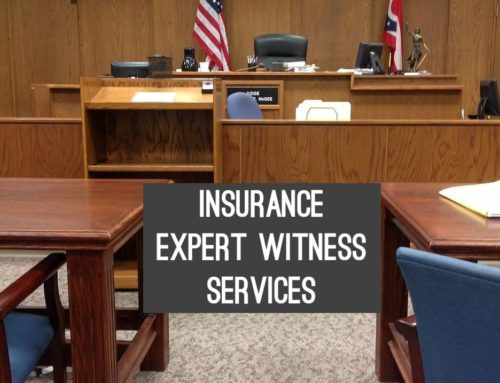How to Write an Expert Witness Report – Part 3
An expert’s report can make or break a case. Mistakes in failing to comply with the legal requirements of an expert witness report can preclude it from admission, which bars the expert from testifying. Experts and attorneys alike should know what a report requires, including local rules, and keep in mind tips and tricks to make the report more persuasive and powerful.
Legal Requirements and Formatting
Legal Requirements
The Federal Rules of Civil Procedure 26(a)(2)(B)(i)-(vi) govern the requirements for expert witness reports in civil cases. Rule 26’s requirements are as follows:
(i) A complete statement of all opinions the witness will express and the basis and reasons for them;
(ii) The facts or data considered by the witness in forming them;
(iii) Any exhibits that used to summarize or support them;
(iv) The witness’ qualifications, including a list of all publications authored in the previous ten years;
(v) A list of all other cases in which, during the previous four years, the witness testified as an expert witness at trial or by deposition; and
(vi) A statement of the compensation to be paid for the study and testimony in the case.
Also, as part of the Rule 26(a)(2)(B) expert witnesses only need sign their report. However, a general or professional report is not admissible in court unless sworn. If an expert witness report does not contain the abovementioned items, the court will exclude it. In Eldridge v. Pet Supermarket, Inc., a defendant sought to strike an insurance consumer survey report, along with the insurance expert’s testimony. The defendant argued that the expert failed to comply with Rule 26(a)(2)(B) as she did not provide a complete statement of the reasons nor the data she considered in forming her opinions. The court ruled that when a party fails to provide information required by Rule 26, then that party is not allowed to use witness or information to contribute any evidence, “unless the failure was substantially justified or harmless.”[1] The court went on to state that the exclusion is “automatic and mandatory.”[2]
There is an affirmative duty to “supplement or correct” an expert report if some “material respect” is either incomplete or incorrect, including additional or corrective information that has not been made known to the parties through other discovery or in writing. The expert must write a supplemental or a rebuttal report, whichever is needed to properly amend their original report, and the attorney must file it.[3] The purpose of expert disclosures is to avoid surprises or ambushing at trial. Consequently, an expert may not continually bolster their report. A supplemental report is if new information becomes available that affects the expert witness’ testimony and opinion, for good or ill. If the expert fails to amend their report, then they cannot testify to the new information or opinions, even if the opinions are elaborations or clarifications.
Lawyers and experts alike should make sure they know the Local Uniform Civil Rules for the district in which they are trying a case. The local court rules may narrow down or give specific instructions on what must be produced with the report. If the attorney does not provide the rules upon hiring, the expert should ask the hiring lawyer for the local rules for writing a report when testifying in a new court.
Formatting Expert Witness Report
Formatting a report is just as important as the contents. A report should ultimately be easy to read and look professional. Here are some tips to consider when formatting an expert report:
- Use professional letterhead;
- Use a 12-point font (e.g., Arial, Times New Roman, etc.) and 1.5 to 2 lines when spacing;
- Use topic headings and keep paragraphs concise;
- Use page numbers 1of N (so the reader knows how long the report is);
- Use unique numbers for tables, charts, and exhibits;
- Include a cover page and table of contents;
- Include when the report was written and who requested the report;
- Include the date you received documents and formed your opinion;
- Include a summary of your conclusions and opinions;
- Include a statement that with new information opinions may be revised or updated; and
- Define all technical language and explain all abbreviations.
A formatted report is easier to read and more persuasive for it. Focus on the most important part, which is what the report must include. However, a persuasive and professional looking report makes for a better case.
Need help with federal cases involving insurance?
Rule 26 Amendments, History, and Practical Application – Part I
Effects of 2010 Amendment of Rule 26 – Part 2
Washington DC Federal Courthouse Photo Credit
References:
[1]Case No. 18-22531-Civ-WILLIAMS/TORRES (S.D. Fla. Jul. 25, 2019)
[2]Id.
[3]Fed. R. Civ. Pro. 26(e)




